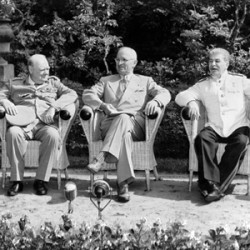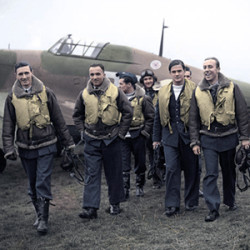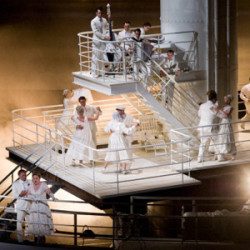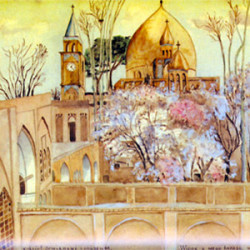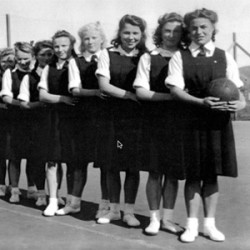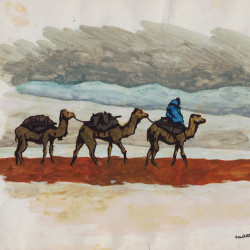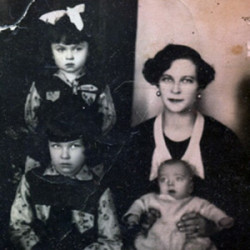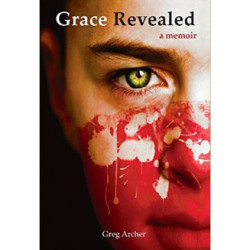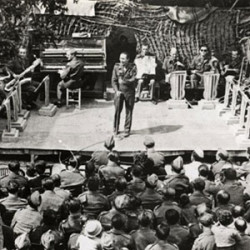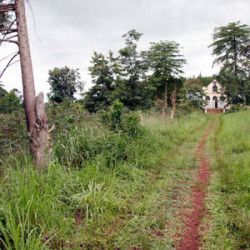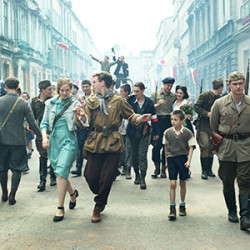2015 Vol. 7 No. 3 — Fall / Commentary
Loss of territory, no reparations from Germany, a dictatorship imposed from abroad, and no safe return for Polish veterans and wartime exiles. In Washington, London and Moscow power and duplicity ruled; honor and integrity collapsed. M.B.B. Biskupski comments.
2015 Vol. 7 No. 3 — Fall / Features
From Norway to Africa, from Russia to the Atlantic, in the air and on the sea, the Polish forces were there for their allies. Justine Jablonska pays tribute to the bravest and most loyal men and women of WWII.
2015 Vol. 7 No. 2 — Summer / Interviews
“When enemies agree to sit at the table, push away anger and desire for revenge, they find a way to compromise,” IPN historian Przemysław Gasztold-Seń tells Bobbie Traut. Democracy is always a work in progress, and Gasztold-Seń remains optimistic.
2015 Vol. 7 No. 1 — Spring / Music
Mieczysław Weinberg’s opera, The Passenger, is not only a complicated work of art, but a complicated work of historical trauma. Magda Romanska reviews the work with a brilliant survey that covers the opera, the history, the novel by Zofia Posmysz, the film by Andrzej Munk, and the responses to the production.
2015 Vol. 7 No. 1 — Spring / Features
They received gifts of dates, nuts, roasted peas with raisins, and juicy pomegranates; visited museums, mosques and bazaars; and were always greeted with kindness. All this in what has often been called the most beautiful city in the world.
2015 Vol. 7 No. 1 — Spring / Features
It is important to understand the welcome practices of host countries and their treatment of child refugees, and the long-term well-being and adaptation of both the children and their host countries. Amanda Chalupa takes a look at what is possibly the gold standard, set by the people of New Zealand.
2015 Vol. 7 No. 1 — Spring / Commentary / Features
When the Soviets deported Polish citizens from their zone of occupied Poland, the Poles began a journey that would cover several continents and oceans. Among the most amazing is the saga of the children’s odyssey.
2015 Vol. 7 No. 1 — Spring / Features
Beautiful, wise, accomplished, serene and very strong, Halina Babinska is as admired as she is modest. She credits the sensitive care she got in the Polish orphanage after World War II for her recovery to a normal and useful life.
2015 Vol. 7 No. 1 — Spring / Books / Interviews
Justine Jablonska catches Greg Archer in a serious moment, and the conversation ranges from Cyndi Lauper and Ewan McGregor to his indomitable family and the after-effects of war.
2015 Vol. 7 No. 1 — Spring / Books
Fast-paced, sometimes self-indulgent but at times furiously funny, Greg Archer looks at his family’s traumatic experience in the Soviet gulag after years of running away from it.
2014 Vol. 6 No. 3 — Fall-Winter / Features / Music
When Beth Holmgren writes about Poland’s interwar cabaret, you can almost hear the champagne corks flying. This time, the cabaret goes to war. Isn’t that when you need it most?
2014 Vol. 6 No. 3 — Fall-Winter / Features
The world’s largest crocodiles cooled off in nearby water, and hippos and baboons helped themselves to lunch. But it was entertaining. And Irene Tomaszewski was there.
2014 Vol. 6 No. 3 — Fall-Winter / Films
Sometimes art can touch what intellectual debates only circle, but that touch can cause searing pain.
